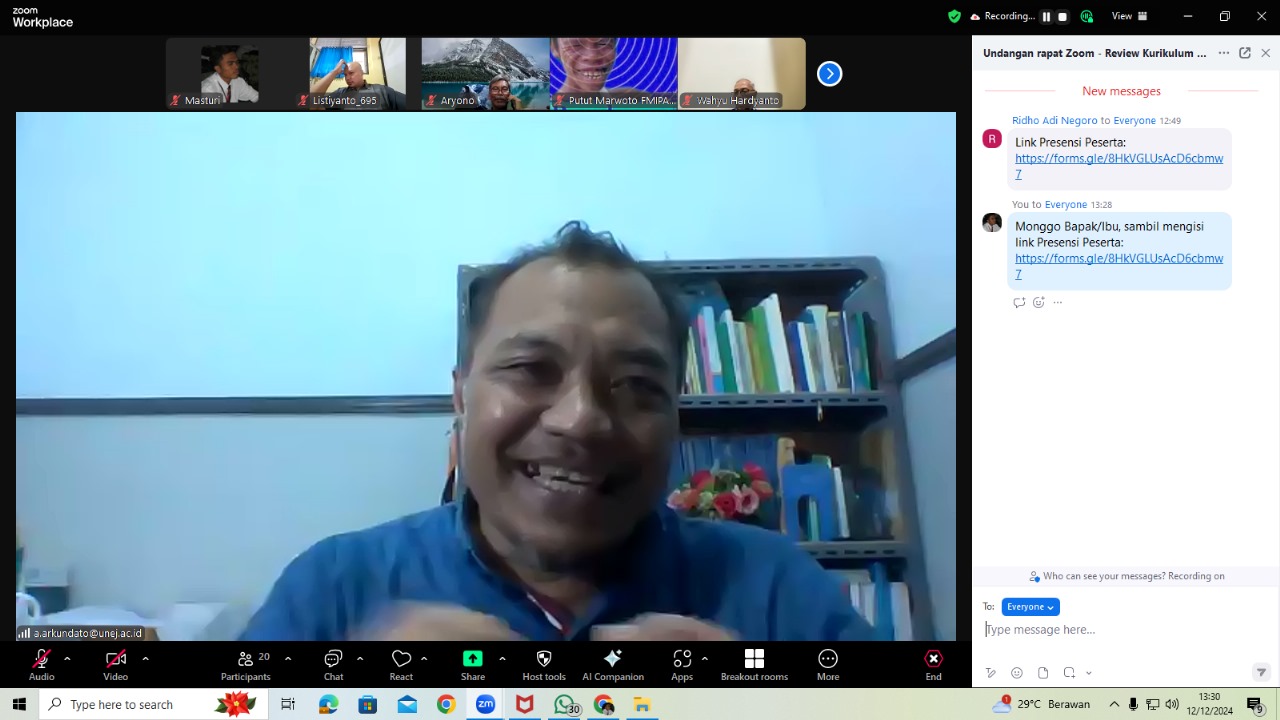On Thursday (12/12), the Physics Study Program again held the 3rd Curriculum FGD series. The discussion activity which took place online was related to the curriculum update of the Undergraduate Physics Study Program, FMIPA, Semarang State University. Dr. Artoto Arkundato, Coordinator of the Applied Materials and Energy Computational Physics Research Group, FMIPA, Jember University, as a resource person in this activity emphasized that coding skills, especially using the Python programming language, are very crucial considering the rapid development of artificial intelligence (AI) and its application in various fields. Therefore, the curriculum of the Undergraduate Physics Study Program, FMIPA, Semarang State University needs to accommodate the improvement of students’ skills in computing, both for data analysis, material development, and applications in the energy field.
In addition, the discussion also highlighted the need to adjust the number of compulsory and elective courses in order to provide flexibility for students in developing their concentrations or research groups of interest. Curriculum updates also need to include collaboration between disciplines, considering that Computational Physics has great potential to interact with various other fields such as Earth, Instrumentation, and Medical Physics. Collaboration between physics lecturers and practitioners from outside is also considered important to improve the quality of teaching and lecturer development, by inviting experts to provide additional materials.
Finally, this discussion emphasized the importance of developing a curriculum that is responsive to technological developments and industry needs, as well as ensuring that students of the Undergraduate Physics Study Program at Semarang State University have skills that are relevant to the world of work that increasingly prioritizes the ability in computing and data-based research. With these recommendations, it is hoped that the Undergraduate Physics Study Program curriculum can produce graduates who are better prepared to face future challenges and contribute to the advancement of science and technology.


